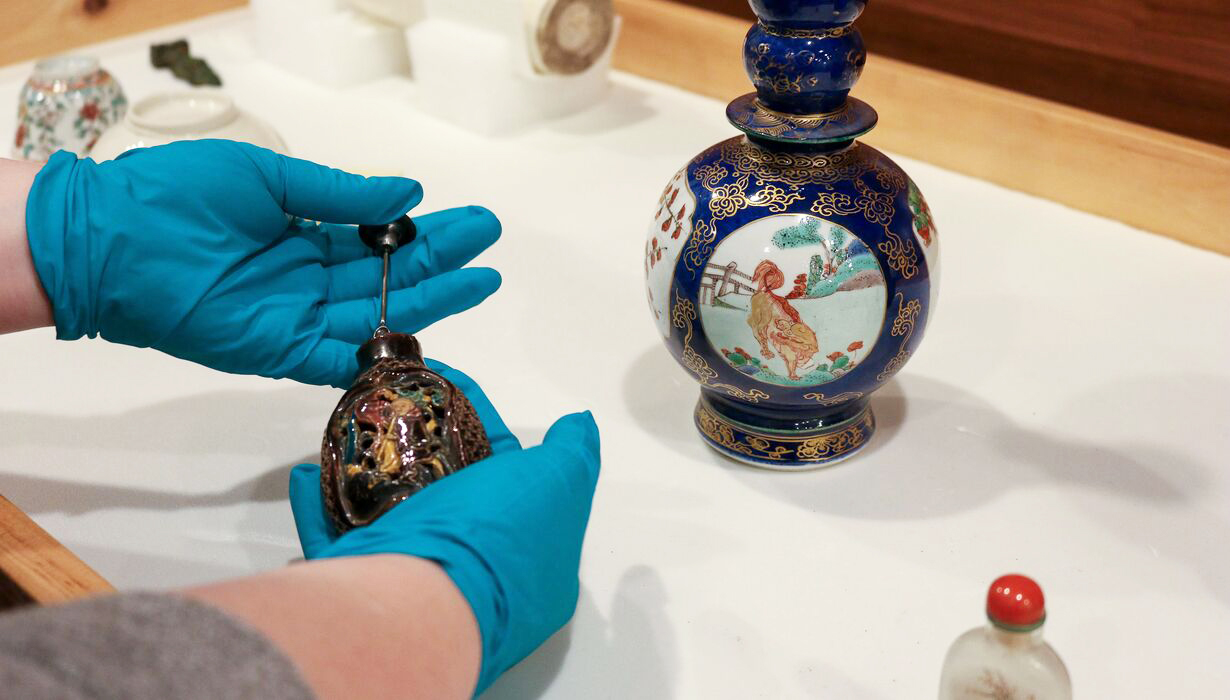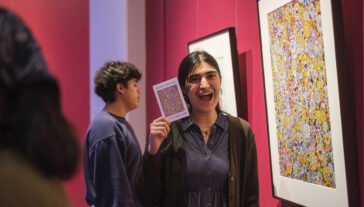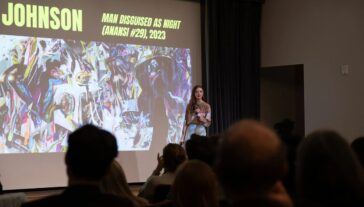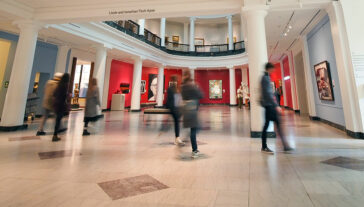Prestigious Chinese Object Study Program Moves to University of Michigan Museum of Art, Builds on the Museum’s Strength in Chinese Art

Supported by the Kingfisher Foundation, the Chinese Object Study Workshops will transition to UMMA—first program scheduled for 2025
Ann Arbor, MI—MARCH 19, 2024—The University of Michigan Museum of Art (UMMA) announced today its selection as the new home institution for the renowned Chinese Object Study Workshops, created and administered by the Smithsonian Institution’s National Museum of Asian Art and funded by the Mellon Foundation. The workshops offer a vital platform for training graduate students enrolled in PhD programs in the Chinese art field.
The Chinese Object Study Workshops offer graduate students in Chinese art history an immersive learning experience, emphasizing close observation and art historical analysis through direct interaction with exceptional museum collections of Chinese art in North America. Under the National Museum of Asian Art at the Smithsonian, the program has been extremely impactful for more than ten years in the training of the future generation of art historians and curators who will concentrate on Chinese art.
Now, thanks to a significant investment from the Kingfisher Foundation, UMMA will use its strengths in Chinese art scholarship and conservation, along with its extensive Asian art collection, to sustain and strategically advance this important program.
Beginning in June 2025, UMMA will administer two Chinese Object Study Workshops per year, providing graduate students in North America and Europe opportunities to work directly with objects, gain knowledge about conservation, and learn from leading experts in Chinese art history at partner museums across North America. The first workshop will take place at UMMA and will focus on the Museum’s Chinese art collection. Subsequent workshops will be held at museums in the U.S. and Canada that have substantial collections of Chinese art and have demonstrated experience in mentored and object-based learning. Workshops are led by two professors in Chinese art in collaboration with host museum curators, along with artists, conservators, museum scientists, and other Chinese art experts.
“We are honored to steward the Chinese Object Study Workshops into this next period,” said Natsu Oyobe, Curator of Asian Art at UMMA and newly appointed co-director of the program. “UMMA is a natural home for this prestigious program. Due to our longstanding commitment to highlighting art’s pivotal role in education, our rich history of engagement with China, and our strong collaborations with scholars worldwide, we’re uniquely positioned to foster this important work.”
The University of Michigan’s long historical relationship with China can be traced back to 1845, with the University influencing the research and display of Chinese art since the early 20th century. In 1910, the collection of Detroit industrialist and major collector of Asian art, Chales Lang Freer was exhibited at U-M’s Alumni Memorial Hall (now UMMA), before eventually being donated to the United States government, where it would become the founding collection of the Freer Gallery of Art, a part of the National Museum of Asian Art.
Additionally, James Marshall Plumer was a noted expert on Chinese ceramics and U-M professor from 1935 to 1960. After Plumer’s death, many objects that he acquired in his travels throughout Asia entered UMMA’s collection. The legendary art historian Richard Edwards’ teaching and research at U-M between 1960 and 1986 was instrumental in advancing the study of Chinese art. His pioneering scholarship on the innovative Qing painter Shitao (1642-1708) culminated in an exhibition at UMMA that was the first exhibition in the United States devoted to a single premodern Chinese artist. UMMA Curator of Asian Art Dr. Natsu Oyobe has maintained a strong focus on Chinese art through collaborations with faculty and exhibitions of modern and contemporary Chinese art, including Isamu Noguchi / Qi Baishi / Beijing 1930 (2013), organized in partnership with the Noguchi Museum, and Xu Weixin: Monumental Portraits<(2016).
More recently, UMMA’s acquisition of the Weese Collection of Chinese Ceramics and the Lo Chia-Lun Chinese Calligraphy Collection have added more than 1,000 works to the Museum’s collection, giving UMMA one of the most significant holdings of Chinese Calligraphy in the United States.
Further, UMMA is the only university art museum in the United States with a facility dedicated to the conservation of Asian art. UMMA has maintained the Robert B. Jacobs Asian Art Conservation Laboratory since 1987; this distinctive and specialized resource provides the Museum with the unique ability to care for its collections of East Asian paintings and calligraphic works as well as prints and works on paper in a secure laboratory space designed for public viewing.
Under the new arrangement, Oyobe will serve as co-director of the Chinese Object Study Workshops along with Jonathan Hay, Ailsa Mellon Bruce Professor at the Institute of Fine Arts, New York University, and Jan Stuart, National Museum of Asian Art Melvin R. Seiden Curator of Chinese Art.
“We could not feel more confident in UMMA being the right place for the Chinese Object Study Workshops moving forward,” said Hay and Stuart. “We’re excited to see how they use their incredible strengths in Chinese art to advance the program and build a pipeline of both exceptional museum talent and museologically informed academic specialists.”
More from UMMA


